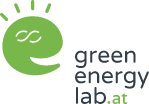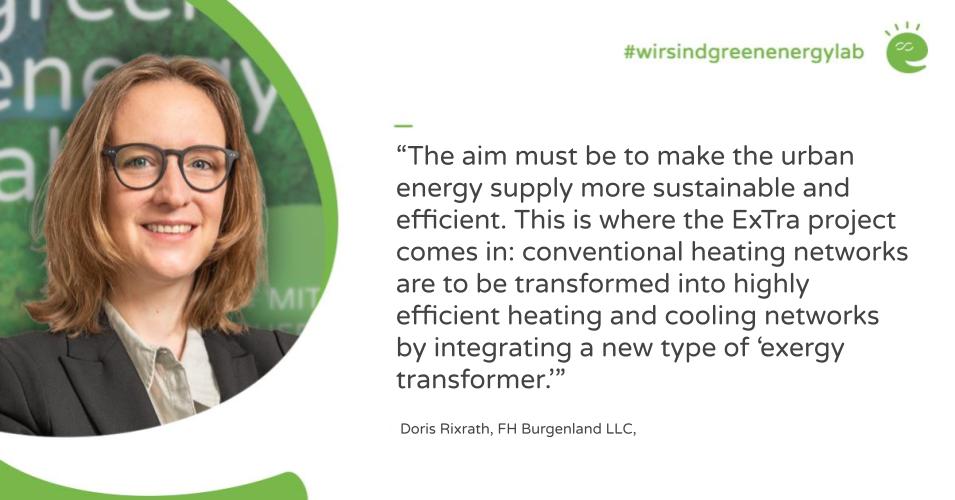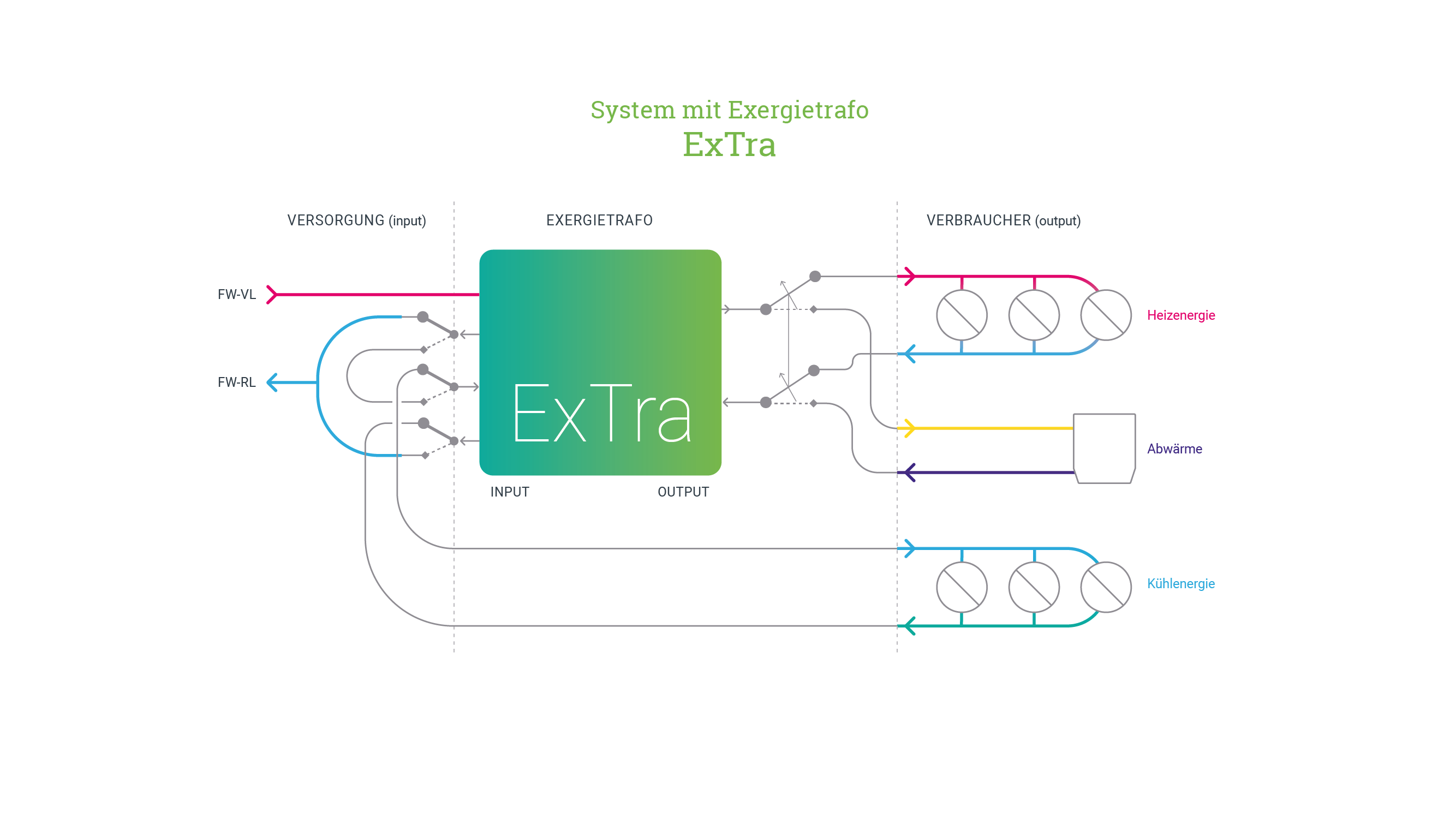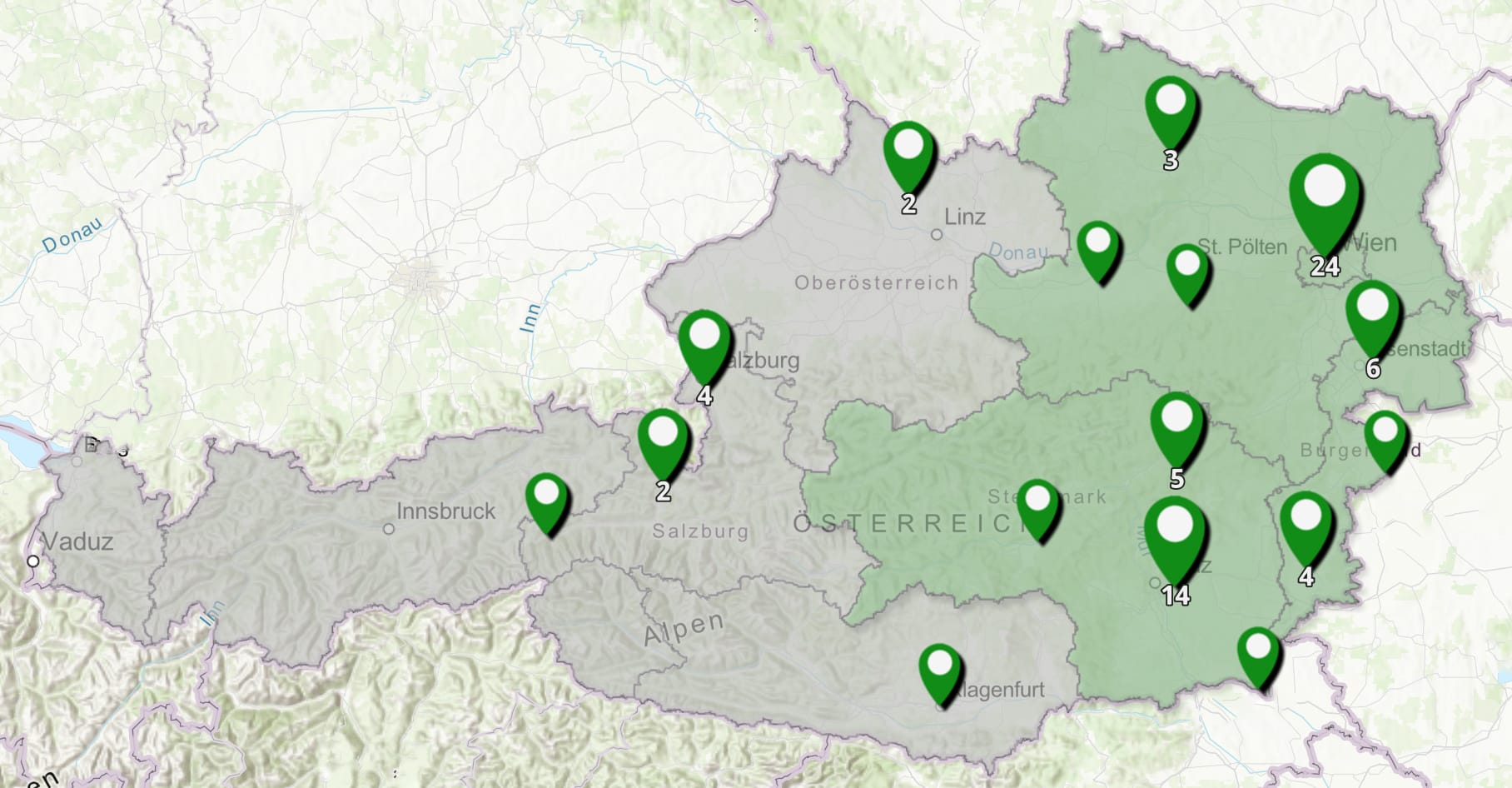ExTra
Conventional heating networks are to be transformed into highly efficient heating and cooling networks by integrating a new type of "exergy transformer".
This research project has been completed. Access the ExTra Results Fact Sheet or download the Publishable Final Report here.
Summary of the results
The energy transition in Austria requires innovative approaches to reducing fossil fuels, which continue to play a significant role in heat supply. Around 33% of the energy used in Austria is used to provide space heating, which accounts for around 20% of the country’s CO₂ emissions. The project aimed to increase the efficiency of district heating and cooling systems and reduce the environmental Impact by integrating new technologies such as absorber and ejector circuits. District heating and cooling systems in Austria are still heavily based on fossil fuels. The development and optimization of technologies to increase energy efficiency and reduce CO₂ emissions are therefore of great importance.
The project “Extra – Exergy transformers for heating and cooling through district heating” investigated various technologies for the combined provision of heat and cooling, in particular absorber and ejector circuits. The aim was to optimize the efficiency of these systems and minimize their environmental impact. In most scenarios, the absorber circuits showed the highest exergetic efficiency and the lowest environmental impact, particularly in the combined provision of heating and cooling. The methodological approach included a comprehensive thermodynamic modelling of the cycle components, an exergetic and economic evaluation as well as a multi-criteria optimization. The systems were evaluated in terms of their environmental impact using Life Cycle Assessment (LCA), with the focus on the operation of the systems.
The results showed that absorber systems are the most environmentally friendly option in most scenarios. They achieved an exergetic efficiency of up to 91% in the combined provision of heating and cooling and had the lowest CO₂ emissions. Although the ejector systems had potential, they had a higher environmental impact due to their higher district heating input and electricity consumption. The reference system, which is based on conventional compression chiller technology and a heat exchanger in the district heating network, performed worse due to its high electricity consumption. The results also highlight the need to decarbonize energy sources, especially district heating and the electricity mix. Efficiency improvements in absorber and ejector technologies could further improve their environmental balance. The choice of system should always be adapted to the regional conditions, such as the electricity mix and the availability of district heating, in order to minimize the environmental impact. A more comprehensive life cycle analysis, which takes into account not only the operation but also the production and disposal of the systems, can enable a more differentiated assessment of sustainability.
The absorber systems therefore offer the greatest potential for sustainable energy supply in this project due to their high efficiency and moderate environmental impact. They are a particularly interesting solution for urban applications with combined heating and cooling requirements. The combination of efficient coupling technologies with a decarbonized energy mix is the key to a sustainable energy supply.




